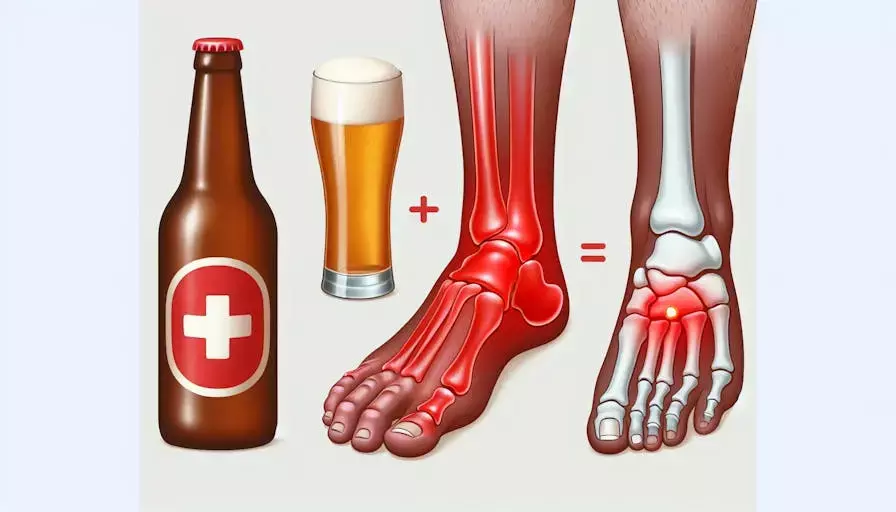- Home
- Medical news & Guidelines
- Anesthesiology
- Cardiology and CTVS
- Critical Care
- Dentistry
- Dermatology
- Diabetes and Endocrinology
- ENT
- Gastroenterology
- Medicine
- Nephrology
- Neurology
- Obstretics-Gynaecology
- Oncology
- Ophthalmology
- Orthopaedics
- Pediatrics-Neonatology
- Psychiatry
- Pulmonology
- Radiology
- Surgery
- Urology
- Laboratory Medicine
- Diet
- Nursing
- Paramedical
- Physiotherapy
- Health news
- Fact Check
- Bone Health Fact Check
- Brain Health Fact Check
- Cancer Related Fact Check
- Child Care Fact Check
- Dental and oral health fact check
- Diabetes and metabolic health fact check
- Diet and Nutrition Fact Check
- Eye and ENT Care Fact Check
- Fitness fact check
- Gut health fact check
- Heart health fact check
- Kidney health fact check
- Medical education fact check
- Men's health fact check
- Respiratory fact check
- Skin and hair care fact check
- Vaccine and Immunization fact check
- Women's health fact check
- AYUSH
- State News
- Andaman and Nicobar Islands
- Andhra Pradesh
- Arunachal Pradesh
- Assam
- Bihar
- Chandigarh
- Chattisgarh
- Dadra and Nagar Haveli
- Daman and Diu
- Delhi
- Goa
- Gujarat
- Haryana
- Himachal Pradesh
- Jammu & Kashmir
- Jharkhand
- Karnataka
- Kerala
- Ladakh
- Lakshadweep
- Madhya Pradesh
- Maharashtra
- Manipur
- Meghalaya
- Mizoram
- Nagaland
- Odisha
- Puducherry
- Punjab
- Rajasthan
- Sikkim
- Tamil Nadu
- Telangana
- Tripura
- Uttar Pradesh
- Uttrakhand
- West Bengal
- Medical Education
- Industry
Alcohol Consumption Greatly Increases Risk of Hyperuricemia and Gout, Especially among Males: Study

Researchers have found in a new study that alcohol consumption raises the risk of hyperuricemia and gout by 69% compared to non-drinkers, with the risk significantly higher in males and those who drink more frequently or in larger amounts.
With the rapid development of socio-economic conditions, the prevalence of hyperuricemia and gout has steadily increased, significantly impacting individuals’ quality of life. Among various dietary factors, alcohol consumption plays a crucial role in the onset and progression of these conditions. Despite its importance, systematic evaluations of the impact of alcohol consumption on hyperuricemia and gout remain limited. Therefore, this study conducts a meta-analysis to explore these effects, with a focus on the moderating roles of drinking frequency, gender, and other relevant factors.
A comprehensive literature search was performed using PubMed, Embase, Cochrane, and Web of Science databases up to November 2024. Studies assessing the relationship between alcohol consumption and hyperuricemia or gout were rigorously screened and subjected to quality evaluation. Data extraction and statistical analyses were conducted using STATA 16.0 software.
A dose–response analysis was performed to assess the relationship between drinking frequency and disease risk. Regression analysis explored the potential effects of gender, age, country, study type, type of alcohol, and diagnostic criteria on the outcomes.
Results: The meta-analysis revealed that alcohol consumption significantly increases the risk of hyperuricemia and gout (OR = 1.69, 95% CI: 1.47–1.94; Z = 7.494, p < 0.05), indicating that drinkers have a 69% higher risk compared to non-drinkers. Egger’s test results (p = 0.317, p > 0.05) showed no significant publication bias, and sensitivity analyses confirmed the robustness of the findings after excluding individual studies. Dose–response analysis demonstrated a positive association between drinking frequency and the risk of hyperuricemia and gout. Regression analysis indicated that age, country, study type, type of alcohol, and diagnostic criteria had minimal effects on the results, while male were more vulnerable to alcohol-related hyperuricemia and gout than female.
The findings from this meta-analysis confirm that alcohol consumption significantly elevates the risk of hyperuricemia and gout, with higher drinking frequency linked to increased risk. Additionally, male drinkers showed a substantially higher risk compared to female drinkers. These results provide strong evidence supporting the development of public health policies aimed at preventing and controlling hyperuricemia and gout, while offering a foundation for future in-depth research.
Reference:
Ma Weiwei , Ye Guancheng , Liu Yiying , Sun Weikang , Huang Xin , Hu Liekui , Chen Lingting , Huang Binbing , Li Huanan. mpact of alcohol consumption on hyperuricemia and gout: a systematic review and meta-analysis. Frontiers in Nutrition. Volume 12 - 2025, 2025. https://www.frontiersin.org/journals/nutrition/articles/10.3389/fnut.2025.1588980. DOI=10.3389/fnut.2025.1588980
Dr. Shravani Dali has completed her BDS from Pravara institute of medical sciences, loni. Following which she extensively worked in the healthcare sector for 2+ years. She has been actively involved in writing blogs in field of health and wellness. Currently she is pursuing her Masters of public health-health administration from Tata institute of social sciences. She can be contacted at editorial@medicaldialogues.in.
Dr Kamal Kant Kohli-MBBS, DTCD- a chest specialist with more than 30 years of practice and a flair for writing clinical articles, Dr Kamal Kant Kohli joined Medical Dialogues as a Chief Editor of Medical News. Besides writing articles, as an editor, he proofreads and verifies all the medical content published on Medical Dialogues including those coming from journals, studies,medical conferences,guidelines etc. Email: drkohli@medicaldialogues.in. Contact no. 011-43720751


